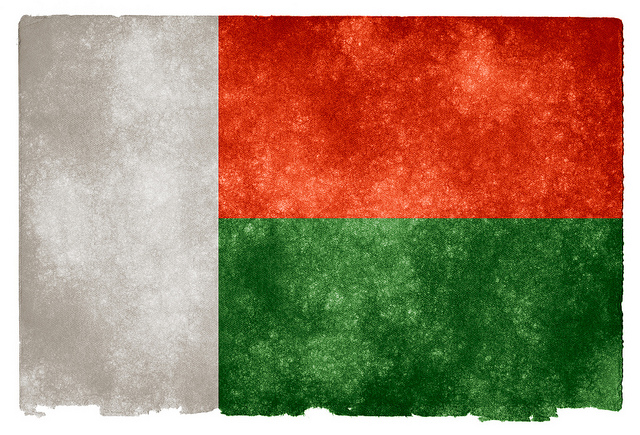This article is part of a series produced for Religion News Service’s parent organization Religion News Foundation with support from the Arcus Foundation and Heinrich Böll Stiftung Southern Africa. It emerged from a November 2017 journalism training workshop in Cape Town, South Africa.
ANTANANARIVO, Madagascar — When photos and video of the popular Malagasy singer D-Lain kissing his male fiancé after their engagement were published on Facebook last November, local users of the social media platform chimed in with a mixture of support and condemnation.
“If it’s his way to find happiness, why not?”, “When you love someone, it doesn’t matter,” wrote a few supportive voices.
“Shame on you,” “It’s unnatural,” “It’s an abomination,” wrote others, their vitriol influenced and likely motivated by cultural and religious beliefs.
For LGBTQ people in Madagascar, such backlash is still more common than respect and tolerance. Many sexual and gender minorities continue to face rejection, discrimination, and even physical violence.
“My parents were very upset when I told them I was gay. They told me to make my life outside of the family house,” said Hary, whose name has been changed to protect his identity.
Hary was born and raised in a conservative Catholic family and moved to the Seychelles in 2016 after being kicked out of his parents’ home. His relationship with his family has grown weaker ever since.
“My grandmother is a very respected person in our Catholic Church. I never had any problem with her. But my sisters, uncles, and aunts criticized me. It was terrible. They stole my life as a teen,” Hary said.
Madagascar is home to a mix of indigenous, Christian, Muslim, and other belief systems. Protestants and Catholics, who together make up roughly half of the Malagasy population, often infuse their Christian faith with traditional beliefs and practices. As a result, many have come to consider sexual and gender minorities deviant, corrupt, or sinful.
“In my family, I experienced discrimination and rejection,” said Mahandry, a dancer whose name has been changed to protect his identity. “Women in the family are more accepting, but I notice it is still difficult for men to accept that I am gay. They just stop talking to me.”
Mahandry spent much of his youth in France.
“At school [in France], I didn’t have any problem. Things started getting complicated when I came back to settle in Madagascar with my boyfriend. With his family, people have no problem with our relationship and our sexual orientation. I felt very lucky with such accepting and supportive relatives. But with my own family, it was another story,” he said.
Like many queer people in Malagasy society, Mahandry said he feels “no need to come out.”
“In my opinion, everything is natural. I just need to live my life in a very normal way,” he said.
Other queer Malagasy hide their sexuality for fear they will be discriminated against or ostracized.
“Some members of my family know I am lesbian. For the moment, I am not courageous enough to come out,” said Mami, whose name has been changed to protect her identity.
While some LGBTQ people say they have become more socially accepted in Madagascar in the last decade, many still fear that revealing their sex, sexual orientation, or gender identity in the workplace could bring harassment and discrimination.
“There is always someone who will say that she or he can’t work with ‘someone like you,’ referring to your queerness like it’s a category of humanness,” Hary said.
For support, some gay men belong to the organization Malagasy MSM (men who have sex with men), which is recognized by the National Committee for the Fight against HIV/AIDS. Local lesbians are more likely to interact online, often in secret Facebook groups.
In Mahajanga, a city on the northwest coast of Madagascar, the NGO Miahy empowers LGBTQ people to address discrimination and violence. Miahy also helps the local queer community carry out social projects.
“LGBTQ people are marginalized and are more vulnerable to experiencing discrimination and violence. We bring our support by running training programs to help them feel empowered and to reinforce their self-confidence,” said Miahy’s director William Benala Soloheninjo.
Another LGBTQ organization based in Mahajanga is called Ezaka Boeny. It helps LGBTQ people who face discrimination, violence, and workplace issues.
“We try to help each other overcome major problems facing the LGBT community,” said Daniel Tokiniaina, an Ezaka Boeny board member. “I could easily get authorization to organize a pride party, but until now we haven’t found anyone to sponsor this kind of event. That is the reason there is no gay pride here.”
Despite the existence and work of these groups, many queer adults in Madagascar live in secret or settle outside the country in places like France where same-sex marriage is allowed.
“I find in the Seychelles that people are more likely to be open-minded. That is good, but we still need to live with discretion,” said Hary.
Mahandry, who still lives in Madagascar, says the local art community is “a kind of refuge” for him, “a bubble in which we can live our lives without disturbing anyone.”
Domoina Ratsara is a journalist based in Antananarivo, Madagascar.





